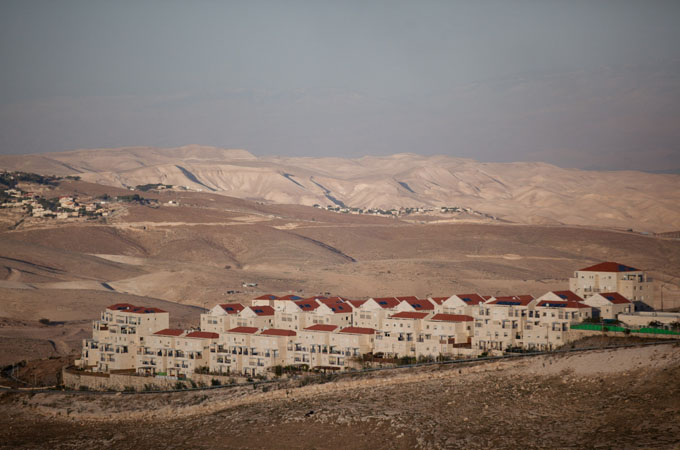By Kathryn Maureen Ryan
Impunity Watch, Middle East
JERUSALEM, Israel – The Israeli cabinet voted on Sunday to expand its list of West Bank settlements eligible for government subsidies. The vote came just days after the resumption of the long-halted peace talks with the Palestinian Authority.

The Cabinet voted to expand the number of communities included on its “national priority map,” a list of poor communities prioritized to receive housing subsidies and other government benefits. The list includes 91 settlements in the occupied West Bank region, up from 85 on the 2012 version of the map.
Many of the West Bank settlements included on the list would most likely be required to evacuate if the current peace talks result in an agreement between the Israeli and Palestinian governments.
Until recently, three of the settlements added to the list, Rehelim, Sansana and Bruchin were classified as “illegal outposts”, meaning they were constructed without the approval of the Israeli government. However, the Israeli government retroactively legalized them by normalizing their last year though a cabinet vote. They are now recognized by the Israeli government and eligible for government funding.
The Palestinian Authority seeks to reclaim lands captured by Israel in 1967, in the hopes of establishing a state that will include the West Bank, Gaza and east Jerusalem, with Israel’s borders returning to the pre-1967 lines. Since 1967, the Israeli government has allowed the construction of dozens of settlements on Palestinian lands. The settlements have been deemed illegal under international law by most of the international community. These settlements are now home to roughly 560,000 Israelis.
Hanan Ashrawi, a senior Palestinian official stated that she believes the cabinet’s action “will have a destructive impact” on the peace process. She believes that the vote affirmed suspicions felt by many Palestinians about the Israeli government’s motivations for agreeing to participate in the peace negations. She argued, “[t]his is exactly what Israel wants. Have a process for its own sake, and at the same time have a free hand to destroy the objective of the process.”
Four Israeli ministers abstained from voting on this issue, including Amir Pertz, the current Environment Minister and former Minister of Defense from 2006-2007, said of the vote, “I don’t think it is the time diplomatically, or from a socioeconomic point of view, to include new settlements that until recently were illegal.”
Mark Regev, a spokesperson for the Israeli government, pointed out that the list voted on by cabinet is only a list of communities eligible to receive funding and that the Israeli government would have to grant additional approval for any subsidies to settlements to be dispersed.
The vote can be viewed as an attempt to shore up support for the coalition government in communities added to the subsidies list. Likud, Prime Minister Netanyahu’s party has historically supported settlements. Some of the settlements added to the subsidy list are political strongholds of the Jewish Home Party, one of the member parties of the governing coalition. It is opposed to the establishment of a Palestinian State.
For more information please see:
Al Jazeera – Israel expands West Bank settlement subsidies – 4 August 2013
Jerusalem Post – Despite peace talks, cabinet approves preferential status for settlements – 4 August 2013
Jewish Telegraphic Agency – West Bank settlements join Israel’s list of national priority communities – 4 August 2013
Reuters – Israel puts 91 Jewish settlements on priority spending list – 4 August 2013
Wall Street Journal – Israel Expands Settlements Eligible for Subsidies – 4 August 2013